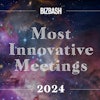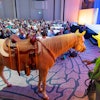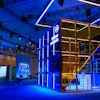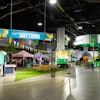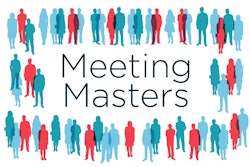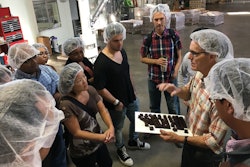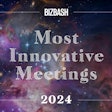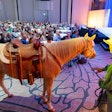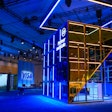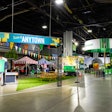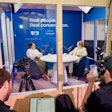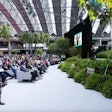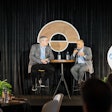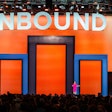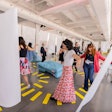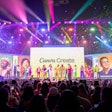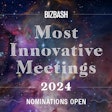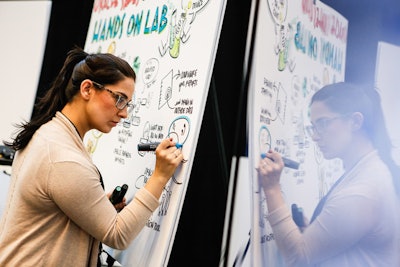
At a 60,000-person event like Oracle’s OpenWorld, how speakers deliver content is a crucial question. Formats like PowerPoint-heavy lectures are “not the best way for learning retention to happen,” said Paul Salinger, vice president of marketing at Oracle.
So the tech giant tapped Harvard University’s Project Zero—which explores how people learn—along with its partner agency Mosaic to redesign part of its 2,000-session attendee educational program for its 2016 event at the Moscone Center in San Francisco.
“We’re creating this concept we call collective learning, which is taking the idea of the standard passive learning and making it active,” Salinger said.
The initial pilot was small—just 20 sessions—but the post-event feedback Oracle received was enthusiastic. “We measured it, and attendees felt like they got more out of those sessions,” Salinger said.
Building on that success, Oracle expanded the innovations tenfold for the 2017 OpenWorld in early October. Oracle is bringing in a new partner, Stanford University’s Media X Lab, as it plans to reshape as many as 200 sessions into one of five new formats. The formats offer different types of content delivery, said Scott Dzierzanowski, Mosaic’s associate creative director.
These formats range from wayfinding sessions dubbed “homerooms” to “brain snacks,” sessions that have a format akin to speed-dating in which a facilitator guides two- to three-minute dialogues between attendees.
Instead of typical case studies that are delivered via lecture, participants were presented with the problem and have to work in teams to find a solution themselves.
“Where we’re going with this is a real interest in educating our audience in a different way to allow for deeper learning and networking,” Salinger said.
To align speakers with the new approach, Salinger and his team created a “speaker impact kit” to show them how to incorporate dynamic learning principles into their presentations. The kits included examples of how to rework their content and provide ideas for fostering connections among attendees.
When Oracle began reimagining OpenWorld education, it was with an eye toward the next generation of attendees, Salinger said.
“People who grew up digital engage with the world differently,” he said. “We’re trying to get out ahead of that curve and think of that now.”
Previous: #4 Google I/O
Next: #6 NewCo Bay Area Festival
